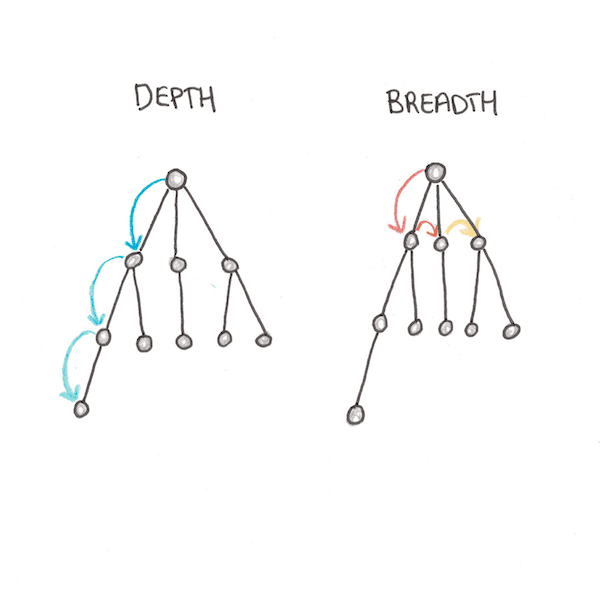How to Quickly Extract the Best Insights from a Huge Topic | Scott H Young
Curated from: scotthyoung.com
Ideas, facts & insights covering these topics:
5 ideas
·6.03K reads
13
Explore the World's Best Ideas
Join today and uncover 100+ curated journeys from 50+ topics. Unlock access to our mobile app with extensive features.
There are Two Strategies for Learning Something
- Depth-first. This is where we pick one area and drill down.
- Breadth-first works by first exploring your surroundings. If that doesn't work, pick one direction and fan out again.
If the area you're exploring is bounded or set out, like a syllabus, both strategies will work. If learning is without bounds, going in-depth first may lead you on a long detour. Choose poorly, and you can get stuck on an unwanted path.
349
1.76K reads
How to Explore a New Topic Efficiently
When learning any new topic efficiently, we need to learn the most useful, basic and broadly applicable ideas first.
After that, we can move onto the obscure, advanced or specialized.
323
1.37K reads
Academic Research: Follow the Citations
The learning space for an academic subject is composed of papers, books, and courses, linked via citations.
- Start with a course or textbook. It will provide an easy entry-point.
- For more specific topics, use literature reviews and meta-analyses, as they combine different studies.
- Follow citation trails, focusing on papers that surface repeatedly.
306
1.03K reads
Language Learning: Usage and Frequency
- Master a few basic phrases using any source to give you something to play around with.
- Use the language in the setting you care about, or substitute real conversations with mock discussions using a dictionary.
- Pay attention to any words that come up. Make flashcards to memorize words that you will use in a real situation.
- Supplement with frequency lists - lists that contain small grammatical words as well as knowing the translation to the most common 1000 English words will enable you to hold engaging conversations.
301
871 reads
Practical Skills: Projects Help Prioritize
A project can help guide you if you're learning to do or make something.
- Pick something you'd like to make.
- Learn anything you need to build it. This will help you with a rough understanding and is not intended for mastery.
- Put topics that come up on a "To-Learn" list.
- Learn your list. Pick an item, and set aside a specified time to dig deeper.
290
983 reads
IDEAS CURATED BY
George 's ideas are part of this journey:
Learn more about problemsolving with this collection
How to use storytelling to influence and persuade
How to create a compelling narrative
How to structure your story for maximum impact
Related collections
Similar ideas
6 ideas
How I Do Research | Scott H Young
scotthyoung.com
6 ideas
How I Do Research | Scott H Young
scotthyoung.com
3 ideas
The Perfect Studying Routine | Scott H Young
scotthyoung.com
Read & Learn
20x Faster
without
deepstash
with
deepstash
with
deepstash
Personalized microlearning
—
100+ Learning Journeys
—
Access to 200,000+ ideas
—
Access to the mobile app
—
Unlimited idea saving
—
—
Unlimited history
—
—
Unlimited listening to ideas
—
—
Downloading & offline access
—
—
Supercharge your mind with one idea per day
Enter your email and spend 1 minute every day to learn something new.
I agree to receive email updates

